In July of 2014, it seemed as though commercial fishermen, conservationists, Alaska's native peoples, recreational anglers, and more had, after years of relentless advocacy, prevailed in their fight to protect the Bristol Bay region of Alaska from large-scale, open-pit mining. The Obama administration—after years of scientific study, economic analysis, consultation with Alaskan communities and leaders, and comments from hundreds of thousands of Americans asking the government to stop Pebble Mine—decided to exercise the EPA's power under section 404(c) of the Clean Water Act by issuing a Proposed Determination to permanently restrict mining in Bristol Bay.
Bristol Bay, the 17,000 Alaskan jobs it provides, the $1.6 billion it contributes to the Alaskan and U.S. economies, its fishery which supplies more sockeye salmon to the world than any other, the 30 native cultures that depend on Bristol Bay salmon for their survival and cultural identity, its pristine wilderness, and so on, the EPA determined, was simply too valuable to risk destroying via the construction of a giant copper, gold, and molybdenum mine at its seismically active headwaters. As Hatch Magazine wrote in 2018, "The EPA decided what virtually everyone—save for a few Bond-style villains heading foreign mining companies, their lobbyists and investors—already knew: that constructing the largest open-pit mine in North America, one of the largest mines in the entire the world, one that would include a massive tailings dam that would need to contain an enormous lake housing 1.1 billion tons of toxic mining waste forever ... in an area prone to massive earthquakes was an incredibly—no, monumentally—stupid idea."
But, in 2019 under the Trump administration, the EPA issued a notice withdrawing its 2014 Proposed Determination, terminating the process to protect Bristol Bay under the powers of the Clean Water Act.
Today, more than two years later and after the U.S. Army Corps of Engineers denied the first-ever permit application for the proposed Pebble Mine, Joe Biden's EPA announced its intent to reinstate the Obama-era 2014 Proposed Determination and resume the process of permanently protecting Bristol Bay under section 404(c) of the Clean Water Act. The U.S. Department of Justice, in a filing in the district court, announced that the EPA will request that the 2019 withdrawal notice be remanded and vacated. The EPA's request to vacate comes in the wake of a lawsuit brought by conservation group Trout Unlimited challenging the Trump-era actions, in which the Ninth Circuit Court of Appeals recently ruled in favor of TU.
According to a release by the EPA, "If the court grants the motion, remand and vacatur would automatically reinitiate EPA’s 404(c) review process and the agency would announce a schedule for resuming a process to protect certain waters in the Bristol Bay watershed—including opportunities for public input."
"The Bristol Bay Watershed is an Alaskan treasure that underscores the critical value of clean water in America,” said EPA Administrator Michael S. Regan. “Today’s announcement reinforces once again EPA’s commitment to making science-based decisions to protect our natural environment. What’s at stake is preventing pollution that would disproportionately impact Alaska Natives, and protecting a sustainable future for the most productive salmon fishery in North America.”
“This is a smart and significant step toward putting more durable safeguards in place for Bristol Bay’s fish, clean water, communities and businesses,” said Nelli Williams, Alaska director for Trout Unlimited. “This is an important layer of protection that makes it much more difficult for the Pebble Partnership, or any other companies in the future, to mine the Pebble ore deposit. Now is the time to get these much-needed protections across the finish line, and we look forward to working with EPA and Congress to get it done. Let’s put the Pebble mine proposal in the review mirror for good so we can focus on a bright, prosperous and fish-filled future for Bristol Bay.”

Tim Bristol, executive director of Salmon State, added “The Environmental Protection Agency’s announcement that it plans to cease defending the Trump administration’s backroom deal abandoning science-based protections for the world’s most productive sockeye salmon habitat, Bristol Bay, is a step in the right direction. We thank the Biden administration for moving to restore the public’s trust in the EPA and putting the EPA’s Proposed Determination back on track. We encourage the Biden administration to finish the job and finalize Clean Water Act Section 404(c) protections for Bristol Bay, ensuring that the world’s largest wild salmon fishery and its 15,000 jobs and traditional salmon-based ways of life are no longer threatened by the proposed Pebble Mine.”
“This is a pivotal moment for Bristol Bay fishermen. Our decades-long, locally-led effort to permanently protect Bristol Bay, our thriving commercial fishery, and our communities from the Pebble Mine is finally back on track,” said Katherine Carscallen, Executive Director of Commercial Fishermen for Bristol Bay. “While we are celebrating today, the last four years have taught us that Bristol Bay is not safe from the Pebble Mine until the EPA completes the Clean Water Act Section 404(c) process. The Biden administration has an opportunity and a responsibility to truly finish the job that the EPA started in 2014 and complete the 404(c) process so that Bristol Bay’s fishermen, businesses, and communities can resume our lives free from the threat of the Pebble Mine.”

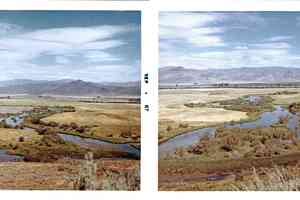




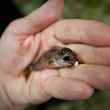

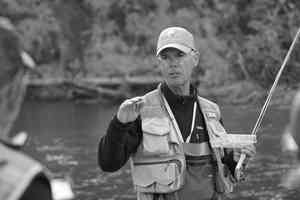




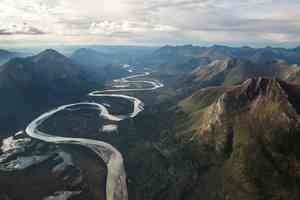

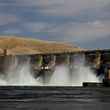
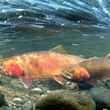
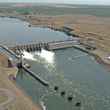
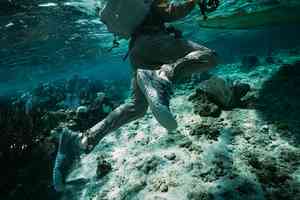
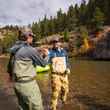





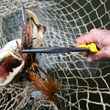

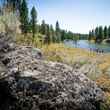

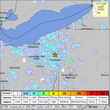

Comments